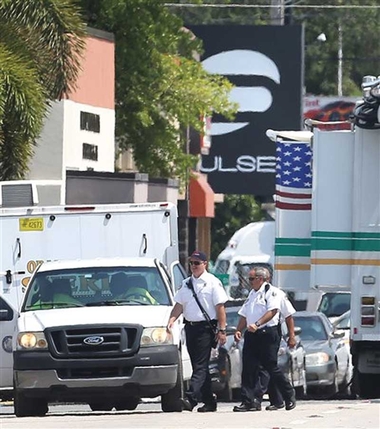Pulse: A major turning point in our history

by Rob Howard
Associate Editor
History is littered with turning points – events beyond which there is no turning back – events that change the future for better or for worse. The terror attack on the Pulse nightclub in Orlando, Florida is likely to be one of those events.
The fight for human rights has many turning points. A great example is the 1848 Seneca Falls Convention. Organized in five days by two women, it drafted and ratified a “Declaration of Sentiments” that became the blueprint for the women’s rights and suffrage movements.
The advancement of women’s rights took 72 years before women won the Constitutional right to vote, but there is a direct line between Seneca and the 19th Amendment giving that right.
Another major event was Bloody Sunday in Selma, Alabama, on March 7, 1965. Marchers intended to walk from Selma to Montgomery, the state’s capital, to petition for the right of African Americans to vote. The crowd was tear gassed after they crossed a bridge, and was then brutally beaten by state troopers and county posse members, sending dozens to the hospital.
Bloody Sunday roused outraged citizens, and is widely considered the push needed to win passage of the Voting Rights Act of 1965, signed by President Johnson on August 6, 1965. The Department of Justice considers the Act “the single most effective piece of civil rights legislation ever passed by Congress.”
LGBTQ history has many turning points as well. One of the most significant is the Stonewall Riot on June 28, 1969. A police raid so enraged the customers of New York City’s Stonewall Inn, a gay bar, that they rioted that night. Demonstrations continued for several nights. The riots led to the founding of the Gay Liberation Front and other LGBT rights organizations.
Stonewall is regarded as history’s first major protest in support of equal rights for gay people. You can draw a direct line between Stonewall, the enactment of LGBT protections by 19 states and the decriminalization of same-sex sexual activity by Lawrence v. Texas in 2003.
The line continues from Lawrence to the Obergefell decision in 2015, extending marriage equality across the United States. Obergefell is itself a major LGBTQ turning point.
Other important LGBT turning points are the horrific murders of Harvey Milk in 1978 and Matthew Shepard in 1998. Milk was the first openly gay elected public official in the country. From 1978 when he was assassinated, to today when we have openly gay members of Congress, most state legislatures and the Secretary of the Army, you can see the direct line between them and Harvey Milk.
The hate crime committed on Shepard outraged the nation, and led to the Matthew Shepard and James Byrd, Jr. Hate Crimes Prevention Act signed into law by President Obama on October 28, 2009. The act expanded federal Hate Crimes law to include sexual orientation and gender identity.
And so we come to the June 12 terror attack at Pulse, an LGBT nightclub in Orlando. It is the worst mass shooting in United States history, with 49 victims. It will surely become a turning point because it comes at a major intersection in our history. Will it cause our Congress to – finally – do something about the epidemic of gun violence in our country?
The attack was on an LGBTQ club, and leaves people across the country fearing for their safety. Will it be the event that pushes Congress to enact LGBTQ protections at the federal level?
The majority of the victims were Hispanic young people, in an election year when Hispanics are reviled by one of the presidential candidates. Will the attack result in some compassion for Hispanics in our country?
And the critical intersection includes that 2016 is a Presidential election year. Will the event in Orlando end up pushing voters toward Donald Trump, or Hillary Clinton?
The Pulse terror attack will certainly be one, or perhaps many, turning points in our history as a nation. While we grieve with the families, friends, and survivors of the attack, we will have to wait and see what direction, or directions, this major turning point takes us.
The Gayly – June 29, 2016 @ 8:40 a.m.





